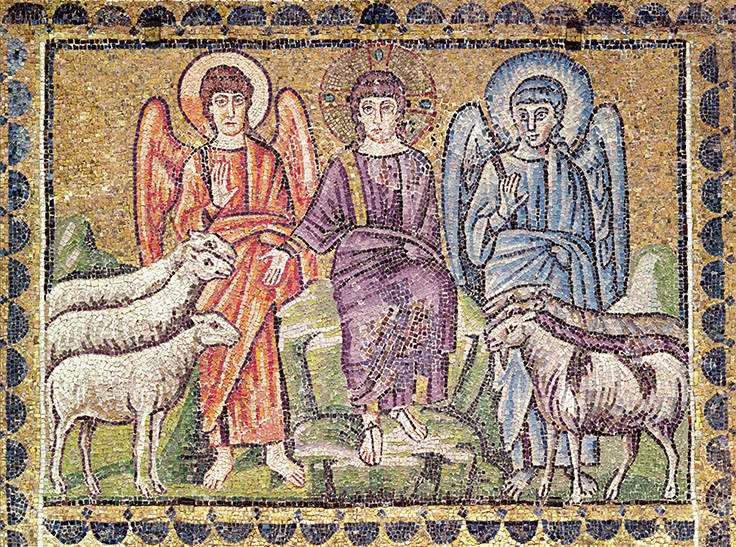“Exclude,” and the noun “exclusion,” have become contentious moral terms. They are perceived as bad opposites to “include” and “inclusion,” concepts that are often regarded as among the great social goods of our day – so much so that hospitals, universities, government agencies, and businesses now have offices dedicated solely to issues of “diversity and inclusion.”
Consequently, the Church is now often being judged primarily in light of these concepts. Witness, for example, the New York Times headline the day the Synod on Youth’s final document was released: “Bishops Urge Greater Inclusion of Women in Church Decisions.” Perhaps so, but was that the main issue at a month-long meeting about youth?
What do these terms mean? And how do they apply to the Church?
To “exclude” is to “shut out, to hinder from entering, to deny admission.” To “include” is the opposite: to “shut in, to contain, to hold” or “embrace.” Within the life of the Church, a papal conclave is the starkest example of these contrasting actions: the cardinals of the world are “shut into” a room to elect the next pope; the rest of the world is “shut out.”
When groups gather, it is only human nature to want to be included – if we think them desirable groups. Fear of exclusion begins with childhood games and birthday parties; it continues with being picked – or not – in sports teams, with finding a seat in the high school cafeteria, with seeking new friends in college, with finding a bar stool at happy hour or a seat at the office Christmas party. We never want to be excluded, and we are filled with natural indignation when we witness someone unjustly exclude another.
Jesus sought to include among His company many that had been excluded from society – tax collectors, manifest public sinners, lepers. Before He ascended into Heaven, Jesus commanded his apostles that all peoples are to be included in His Church: “Go into all the world and preach the gospel to the whole creation.” (Mark 16:15)
The Church that Christ founded is catholic because her mission is universal – she seeks to bring the teaching, love, and mercy of Christ to all people, regardless of race or wealth. In God’s eyes, we are all equal: we are sinners in need of Christ’s redemption. All people are welcome to join the Church. On any given Sunday, any person, Catholic or not, can walk into a church anywhere in the world to hear the word of God proclaimed and to witness the re-presentation of Christ’s saving sacrifice on the cross.

Sadly, the inclusion that the Church desires and we seek is sometimes impeded by Church members, clerics and lay alike, for reasons too numerous to count. Catholics cannot discount the damage that even a disproving glance can cause a fragile soul seeking inclusion in the Church at large or in a local parish. The Church is far more than the failings of her members, yet we cannot allow ourselves to be barriers to the divine medicine the Church offers.
But today conversations about the Church and exclusion almost never concern open access to spiritual gifts – the only ones that bring us to Heaven. Instead, the focus is on access to temporal, human power in the Church here on earth. Sharing in Christ’s priestly, prophetic, and kingly offices, which we all do by virtue of our baptism, apparently is not enough for some people.
In this worldly light, the Church is severely criticized for “excluding” women, married men, and men experiencing same-sex attraction from ordination and ecclesial authority. Thrown in by association is the criticism that the Church excludes marriage between two people of the same sex. So by the standards of radical individualism warped by the demands of the Sexual Revolution, the Catholic Church is “exclusionary.” And who would want to be included in such a Church?
It’s a fair question: Given the Church’s mission to include all people, is it right for her to exclude so many from leadership and authority positions?
Jesus sought to include everyone into His mission, yet He excluded almost everyone from authority within His inner circle. In calling only twelve apostles, He excluded countless more. Even within the college of apostles, when Jesus ascended Mount Tabor with Peter, James, and John, He excluded the other nine. And of these three, only one was called “the beloved disciple,” and only one was given the keys to the Kingdom of Heaven with the mission to “strengthen the brethren.” (Luke 22:32)
Further, when Jesus sought to include the woman caught in adultery, He told her not to sin again. (John 8:11) He did not tell her that her sin could be included as part of her identity or as an expression of her true self. Jesus accompanied the woman into His Church; her sin had to be excluded.
The Church is right to imitate her divine Founder by including everyone within the universal scope of her mission, while excluding many from authority and positions of various kinds. As St. Paul put it, everyone cannot be called to the same ministry. But when we each are called from this life, it is not the power that we possessed on earth that will matter, but how well – or not – we used the divine gifts the Church provides. Saints use these gifts best. It is with them in Heaven that we want to be included.
*Image: The Parable of the Good Shepherd Separating the Sheep from the Goats, Byzantine School, 6th-century mosaic [Basilica of Sant’Apollinare Nuovo, Ravenna, Italy]















